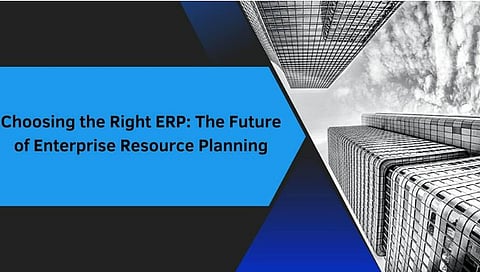

In the rapidly evolving world of enterprise technology, choosing the right Enterprise Resource Planning (ERP) system has become a defining factor for business success. Desi Ramananda Kishore Katuri, an expert in ERP deployment strategies, explores the innovations shaping the future of ERP solutions, from cloud computing to artificial intelligence-driven automation.
Cloud-based ERP systems have seen exponential growth in recent years, offering businesses a flexible, scalable, and cost-effective alternative to traditional on-premises solutions. Organizations are increasingly favoring cloud ERP for its lower initial investment, streamlined deployment, and high availability. With implementation times averaging just 8.2 weeks, businesses experience rapid transformation with reduced downtime. The subscription-based model also eliminates the need for large capital expenditures, making advanced ERP capabilities accessible to companies of all sizes.
Despite the dominance of cloud solutions, on-premises ERP remains a viable choice for industries with stringent data security and regulatory compliance needs. Businesses that require full control over their infrastructure find value in on-premises deployments, with 99.99% system availability ensuring uninterrupted operations. Moreover, organizations that rely on custom workflows benefit from the high degree of configurability that on-premises ERP offers. While the upfront investment is significant, enterprises with large user bases often experience long-term cost benefits, offsetting initial capital expenditures with lower operational expenses over time.
Artificial intelligence (AI) is revolutionizing ERP systems, enabling predictive analytics, automated workflows, and real-time decision-making. AI-enhanced ERP solutions improve demand forecasting by 47.2% and reduce inventory holding costs by nearly 39%. Machine learning algorithms process millions of data points daily, enhancing process optimization and driving efficiency. The integration of natural language processing further streamlines business operations, automating report generation with 96.8% accuracy. As AI capabilities continue to evolve, ERP systems are becoming more proactive, reducing manual effort and improving overall business performance.
Hybrid ERP offers the best of both worlds by blending cloud agility with on-premises control. This model ensures scalability, security, and customization, making it ideal for businesses with complex needs. By integrating cloud-based efficiency with the reliability of on-site systems, hybrid ERP enhances operational resilience and regulatory compliance. Organizations adopting this approach experience a 43.7% boost in system performance and a 34.2% reduction in operational costs. As businesses navigate digital transformation, hybrid ERP provides flexibility, cost savings, and improved efficiency, making it a strategic choice for enterprises seeking to balance innovation with control.
Security is a critical factor in ERP system selection. Cloud ERP solutions leverage advanced encryption and real-time threat detection, preventing 99.7% of security incidents before they happen. In contrast, on-premises ERP systems offer complete data control, minimizing third-party risks. Highly regulated industries like healthcare and finance often favor on-premises ERP for its compliance advantages, ensuring adherence to strict regulations with fewer external dependencies. Whether cloud or on-premises, robust security and compliance measures are essential for ERP success, protecting sensitive data while meeting industry standards and business needs effectively.
Balancing investment and ROI is key when choosing between cloud and on-premises ERP. Cloud ERP reduces initial implementation costs by 67.3% and offers predictable subscription fees, while on-premises ERP yields long-term savings of 34.6% annually after breaking even in 4.2 years. Businesses must assess short-term affordability versus long-term cost efficiency when selecting a deployment model. Cloud ERP suits companies seeking lower upfront costs and scalability, whereas on-premises ERP benefits those prioritizing long-term financial gains. Careful financial planning ensures the chosen ERP system aligns with operational needs and budgetary goals, optimizing overall investment returns.
Cloud computing, digital transformation, and artificial intelligence constitute the tyre that drives the evolution of ERP systems. It is overall the technology and its related innovations that have revolutionized business processes, with well over 73% new ERP implementations being fitted with intelligent data processing. There is an increasing trend toward hybrid deployments that offer flexible architectures with which business can do dynamic models. Business firms are shifting the emphasis of future ERP trends from a focus on real-time analytics and predictive insights into seamless system integrations for enhanced operational efficiency. For most organizations, agility is the prime motivator for suggesting cloud or hybrid modes as part of their business models to ensure scalability, security, and cost effectiveness within their technology environments.
That is, which would depend on what the organization considers important, whether cost efficiency, security, or operational flexibility; it is this cloud, on-premises, and hybrid ERP solution. Desi Ramananda Kishore Katuri emphasizes that organizations must keep ERP choice and business direction in line to capture the full benefits of enterprise systems. Organizations must, therefore, keep pace with innovations so that they can reap the needed efficiencies, security, and scalability that a digitalizing world promises.
